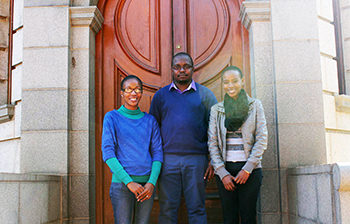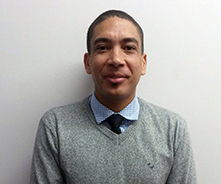Latest News Archive
Please select Category, Year, and then Month to display items
![]()
The University of the Free State (UFS) has an enrolment plan for 2007–2019 that was approved by the Department of Higher Education and Training (DHET). The university is compelled to adhere to these enrolment targets, as over-enrolment poses a risk to the academic integrity, financial sustainability, and student success of the university.
The UFS received 47 000 applications for admission in 2018, of which 17 000 applicants received final admission. All admission letters clearly stipulate that admission is subject to availability of space during registration. The enrolment target for new first-time entering students for 2018 is 8 000, therefore only 8 000 students can be registered across the university’s three campuses during this intake period.
The Executive Management of the UFS welcomes the fact that President Jacob Zuma’s announcement on 16 December 2017 about free education for the poor and working class has allowed many more students the opportunity to register. Several meetings between the Executive Management and the Student Representative Council (SRC) have taken place since the beginning of 2018 to discuss the implications of the President’s announcement. Engagement with the SRC regarding the registration process is also continuously taking place.
Online registration for all students opened on 8 January 2018. The UFS has put several measures in place to assist new first-time entering undergraduate students. Furthermore, students who have moved into residences and participated in the university’s Gateway Programme, as well as students who arrived on campus, were assisted to register for programmes with available space. In cases where the first option of study was full, students were redirected to other programmes with available space within the specific faculty or other faculties, provided that they comply with the relevant admission criteria. Only mainstream programmes in the Faculty of Economic and Management Sciences now have space left. The rest of the undergraduate programmes in all faculties on all the campuses are full.
Students who could not be accommodated in any of the programmes due to limited space are being directed to the Central Application Clearing House (CACH).
nGAP lecturers welcomed by the UFS academic community
2016-06-30

University of the Free State’s newly-appointed nGAP
lecturers. From the left, Neo Mathinya,
Phumudzo Tharaga, and Kelebogile Boleu.
The University of the Free State (UFS) was allocated six positions as part of the Department of Higher Education and Training (DHET) New Generation of Academics Programme (nGAP). Four candidates have filled positions in the Faculty of Health Sciences, Faculty of the Humanities and the Faculty of Natural and Agricultural Sciences – with two positions still vacant.
According to Minister of Higher Education and Training, Dr Blade Nzimande, nGAP is part of the Staffing South Africa's Universities Framework, which focuses on the expansion of the size and compilation of academic staff at South African universities, especially with regard to transformation. The focus of the programme is the appointment of black and coloured candidates as well as women.
The Department of Soil, Crop, and Climate Sciences in the Faculty of Natural and Agricultural Sciences welcomed two nGAP lecturers, Phumudzo Tharaga and Neo Mathinya. The Faculty was allocated four positions. Two positions are filled, while two positions in the Department of Animal and Wildlife Sciences are almost ready to be filled with exceptional candidates.
Agrometeorologist with his feet on the ground
Phumudzo Tharaga holds an MSc from the UFS, and is currently pursuing a PhD. Tharaga’s research focuses on quantifying the water use efficiency of sweet cherry orchards under different climate conditions in the Eastern Free State. Tharaga will offer his students a wealth of practical experience, which he began accumulating while working at ABSA as an agro-meteorologist, before moving on to become a senior scientist at the South African Weather Service. In 2015, Tharaga became a research technologist at the Council for Scientific and Industrial Research (CSIR) and then returned to the UFS as an nGAP candidate at the beginning of 2016.

Beynon Abrahams, nGap lecturer
at the Faculty of Heath Sciences
Department of Basic medicine
Motivated scholar turned academic
Neo Mathinya, who hails from Taung in the North West, has made the UFS her home. She received both her undergraduate and honours degrees from the university. Apart from joining the department as a lecturer under the nGAP initiative, she is currently studying for her MSc in Soil Physics. She will continue with this research when she comes to her PhD. Mathinya’s research focuses on soil salinity - the process of increasing salt content - which affects the ability of plants to take up water, a process, known as osmotic stress. She will investigate the effects of irrigation water salinity on the grain yield and quality of malt barley.
Researcher with a passion for crime prevention
Kelebogile Boleu joined the Department of Criminology in the Faculty of Humanities, with a fresh take on diversion and crime prevention. Boleu holds a BA Criminology (Hons) and is now pursuing her Master’s degree. She worked for NICRO a non-profit organisation specialising in social crime prevention and offender reintegration, with programmes that prevent young and first-time offenders from re-offending, thus reducing crime. Boleu said that her practical experience makes her lectures to third-year criminology students exciting. Boleu’s research focuses on analysing the value of pre-sentencing reports in assisting adjudicators to make well-balanced judgments in cases.
Research with a winning plan for fight against breast cancer
Beynon Abrahams joined the Department of Basic Medical Sciences in the Faculty of Health Sciences. Abrahams holds a BSc, BSc (Hons), and MSc in Medical Biosciences from the University of the Western Cape. Abrahams’ Master’s research focused on breast cancer, research on which he is building in his PhD. This doctoral research involves the exploration of P-glycoprotein, a protein expressed on cancer cell and responsible for multi-drug resistance in cancer treatment. The aim of this research is to develop a therapeutic drug treatment strategy that will improve breast cancer patient survival outcomes. Abrahams’s greater vision is to look at conventional cancer therapeutic regimens, to find ways in which they can be improved.
The nGAP initiative offers these young lecturers an opportunity for growth and development as academics, while providing them with opportunities they would have not have been exposed to otherwise.